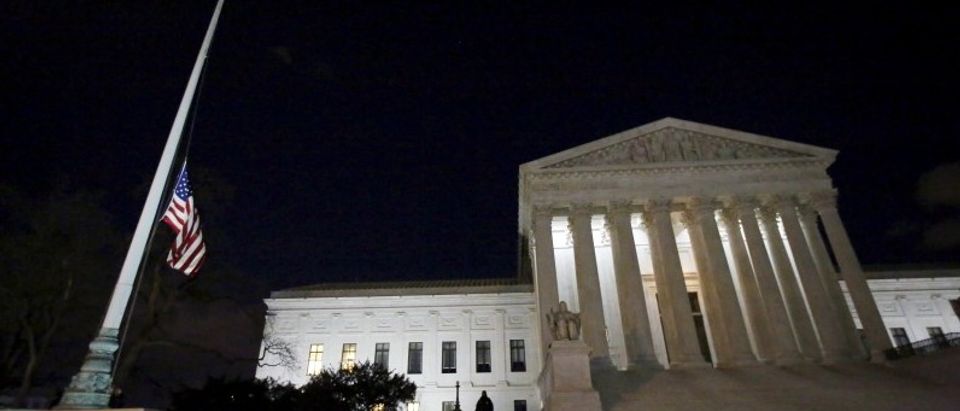If there was ever a time to call your Senators, it is now. With the passing of Justice Antonin Scalia, the author of the Heller vs. District of Columbia decision that threw out Washington D.C.’s handgun ban on the grounds that the Second Amendment protected an individual right to own a firearm, those rights that have been won with a great deal of hard work and sacrifice (not to mention outstanding legal scholarship over the years) – as well as the ability to protect them – are now up for grabs.
While the ramifications of a potential reversal of the Heller decision (and the McDonald v. Chicago case that applied the Second Amendment to the states) are obvious – the passing of Scalia also threatens the ability to protect our Second Amendment rights. How so? Because Scalia was the fifth vote in the Citizens United and McCutcheon cases – two cases that stuck down limits on involvement in political campaigns.
Here is one dirty little secret about McCain-Feingold, which was passed in 2002 in the wake of the collapse of Enron: Anti-Second Amendment groups supported that legislation to suppress the National Rifle Association’s involvement. In a release on Congressional passage of McCain-Feingold, then-Brady Campaign President Michael Barnes said, “Even though the measure will impact our election activities as well, it will cut into the NRA’s even more, reducing the gun lobby’s ability to obstruct the progress of sensible gun laws.” Barnes elaborated on the suppressive effect the previous year in an interview with the San Diego Union-Tribune, saying the McCain-Feingold’s prohibition on certain activity in the 60 days prior to the election “would much more adversely affect the power of the gun lobby” than it would the Brady Campaign’s power.
The short version, the Brady Campaign, after seeing their preferred Presidential candidate lose in 2000 due to the efforts of Second Amendment supporters in Tennessee, West Virginia, and Florida, wanted to muzzle their opponents. Now, those gun-grabbers have a chance to not only wipe out Heller and McDonald, but to restrict the ability of pro-Second Amendment groups to oppose not only gun bans, but efforts to put more anti-gun judges on the court.
Keep in mind that Hillary Clinton and Bernie Sanders have both vowed to only nominate justices who would commit to overturning the Citizens United decision – and you can bet that a judge who would promise to toss out Citizens United will also have the Heller and McDonald cases on their hit list as well.
In the short term, though, any 5-4 cases will end up deadlocked at 4-4. What happens there is that the lower court ruling will be upheld, but it will not be seen as precedent. So, if the other eight justices vote as they did in the Helle case, the Kolbe v. Hogan case, in which Maryland’s semi-auto ban was subjected to strict scrutiny, will stand. That is the good news. The bad news? It will not set a precedent.
That said – if the Senate republicans can hold firm, and keep an anti-gun nominee off the Supreme Court, then there will be a chance to keep all the marbles in 2017, provided a pro-Second Amendment president is elected. But if Hillary or Bernie get elected, then all could be lost.


